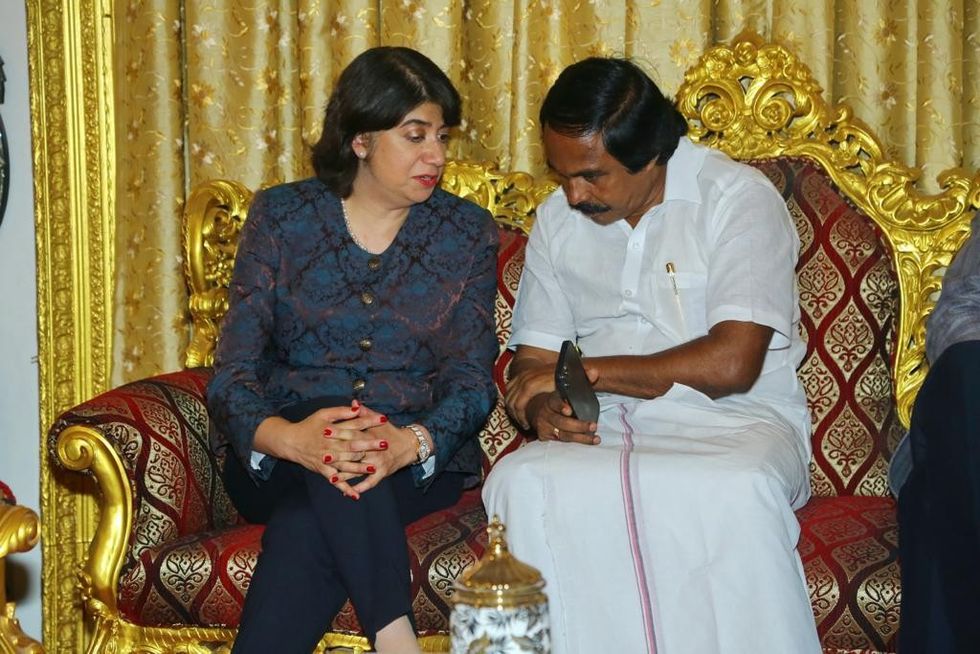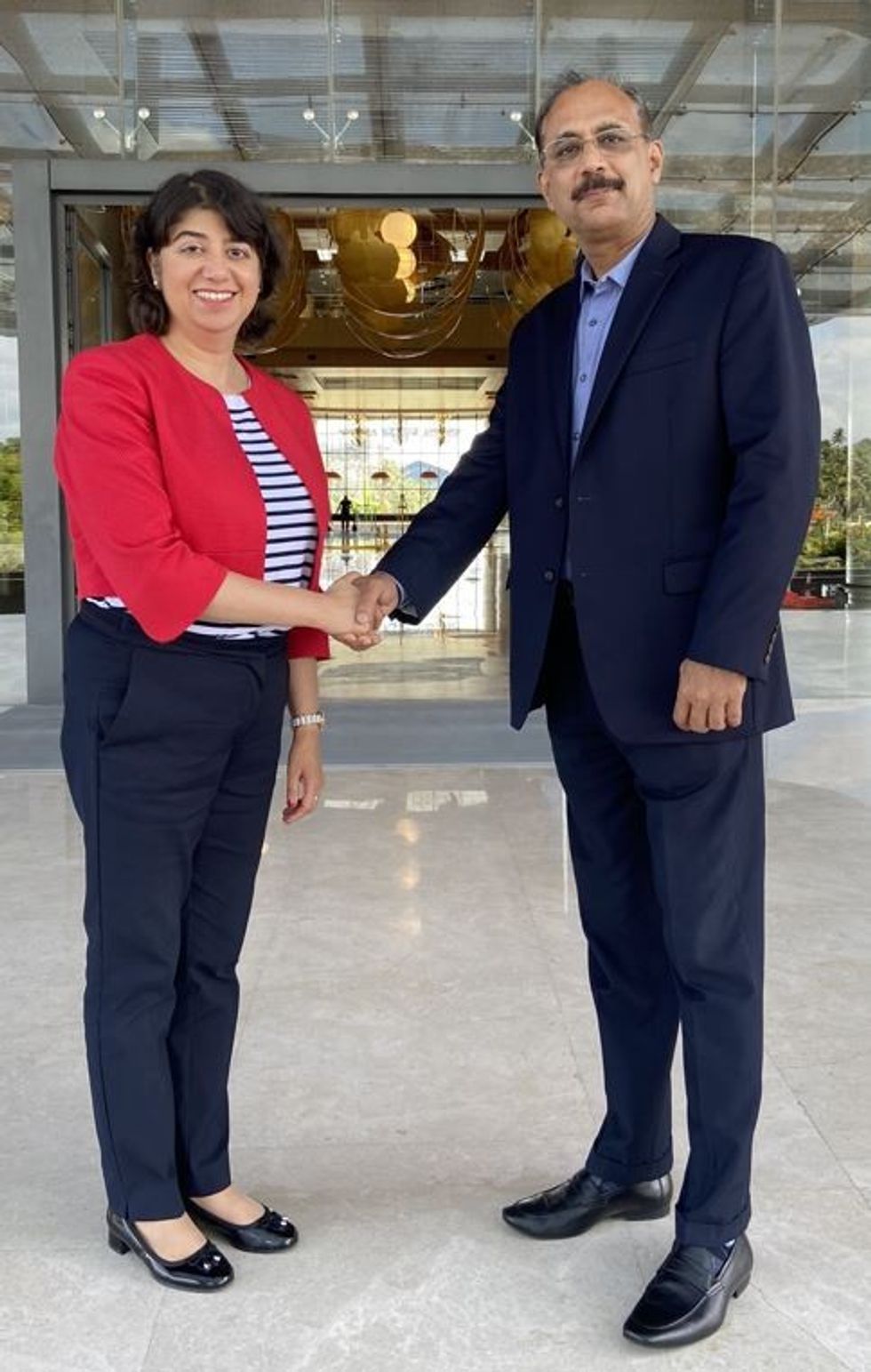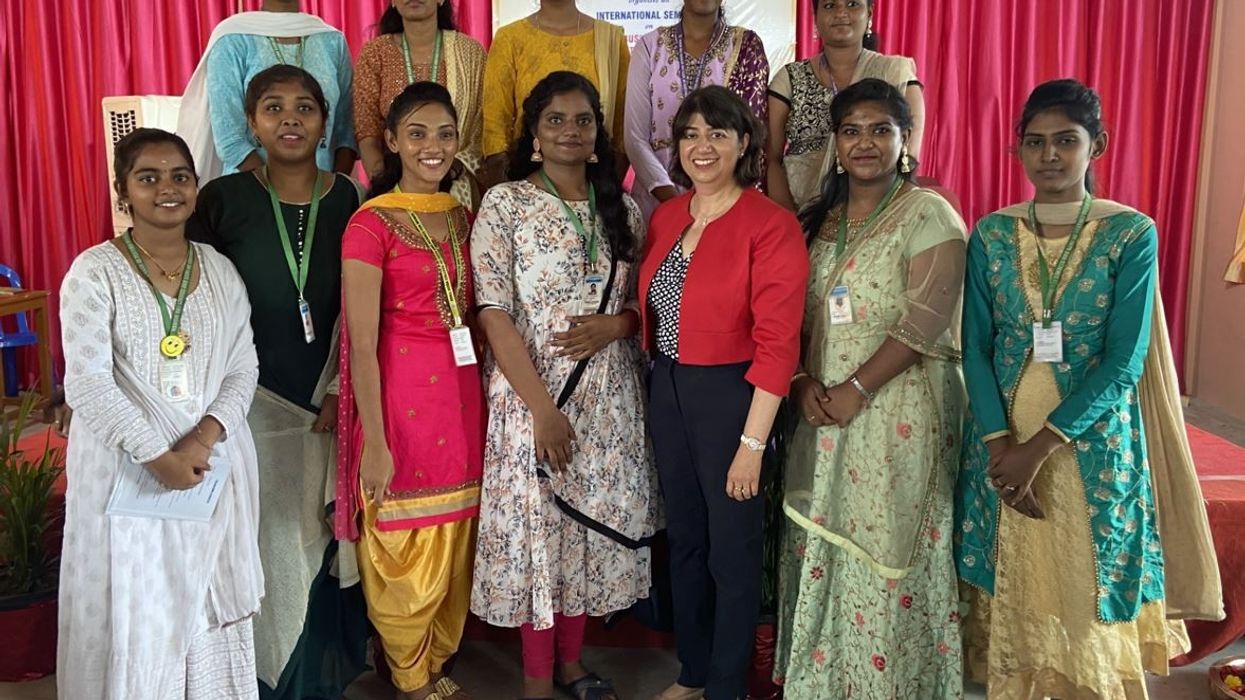LABOUR’S shadow business minister, Seema Malhotra, has backed calls for greater trade links between Britain and India on a visit to Tamil Nadu and Kerala this month.
Malhotra, who represents Feltham and Heston in London, visited both states ahead of India hosting the G20 summit in September.
In June, party leader Sir Keir Starmer said in a speech that a Labour government will seek a serious and deep diplomatic relationship with India.
During her visit, Malhotra visited businesses, universities and colleges, and met diplomats to understand national and state-level priorities for the economy, business and trade and areas of common interest.

Meetings were also organised by the Indian Business Network, which was founded a few years ago and which works to support links with diaspora businesses across the UK and the south Indian state of Tamil Nadu.
In addition, Malhotra addressed 300 students at the Soka Ikeda women’s college in Chennai, which supports young women from families in rural areas to attend college for the first time. The MP was joined in some of the engagements by others from the UK, including Pushpakala Vinoth Kumar, a former journalist and Feltham Tamil Makkal coordinator; and City of London Common councillor Rehana Ahmed. She also convened the UK India Friendship meet held at the Amir Mahal Palace and hosted by the titular Prince of Arcot, Nawab Mohammad Abdul Ali.

Malhotra was a keynote speaker at the event, which was attended by senior business leaders from a range of sectors, representatives from almost 10 embassies, politicians, university vice-chancellors, technologists and health care leaders.
She said, “A Labour government will want to work with India, not only on a Free Trade Agreement, but also a new strategic partnership for global security, climate security, economic security. There are new opportunities – new technologies, new industries, new investments, where our interests clearly align.
“We want to see trade links not just from centre to centre, but from Indian regions to UK regions and nations – building on strengths like those of Tamil Nadu in the medical sector to life sciences clusters in the UK like Cambridge or the northeast of England.”
Malhotra highlighted the strength of the economic contribution of Indian businesses in the UK. This year’s Grant Thornton annual India Meets Britain Tracker identified 954 Indian companies operating in the UK, with a combined revenue of £50.5 billion.

She also noted the opportunities after the UK India Business Council signed an agreement with the government of Tamil Nadu in 2021, with the aim of boosting business and industrial development in Tamil Nadu and strengthening collaboration with British businesses in the state.
“I am pleased that alongside myself, senior figures from Labour’s top team are working with Indian business-led institutions in the UK, as well as visiting India, to hear what is important and how a strengthened partnership can build stronger links ... for the growth domestically and internationally of both our economies,” she said.
Malhotra also paid a short visit to Kerala and visited the UST campus, a global technology and professional services firm operating in the UK, which has a facility in the southern Indian state.
In addition, the shadow minister also spoke to senior women employees about her journey into politics and becoming Britain’s first female Punjabi MP, as well as Labour’s plans for tackling women’s inequality in society and the workplace.




